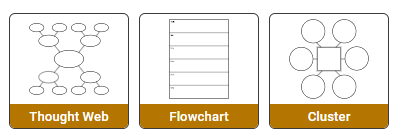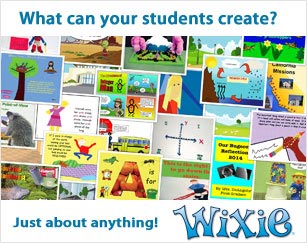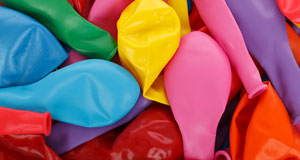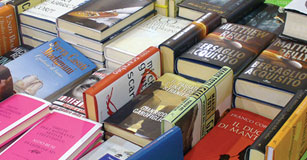The 13 Days of Halloween
Students will practice counting through the creation of a Halloween (or any holiday!) counting book.
Apps: Wixie®
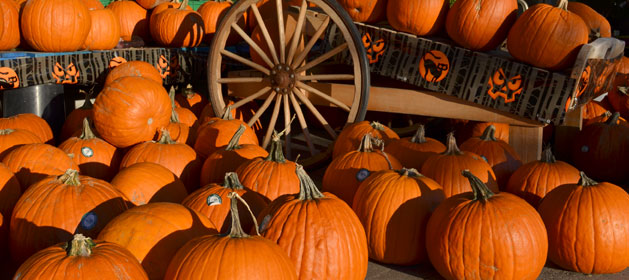
Task
Goblins are coming, witches are getting out their brooms, and black cats are ready to cross your path. It must be close to Halloween!
As part of a Halloween celebration, practice your counting skills and create a 13 days of Halloween project. You will create one page showing a Halloween object “my goblin gave to me”. Your teacher will put all of the class pages together for a complete presentation.
Engage
Read the story Two Little Witches by Harriet Ziefert and Simms Taback to help students practice their counting skills, experience a repetitive story form, and get them thinking about characters associated with Halloween.
Work as a class to brainstorm a list of these objects. Write them in a place all students can see.
Next, ask students if anyone knows the "12 Days of Christmas" carol. Play it so they can all remember or experience it for the first time.
Create
Tell students that they are going to create a similar project, but instead of Christmas, this project will focus on the “13 Days of Halloween.” For example, “On the second day of Halloween, my goblin gave to me 2 ghosts.”
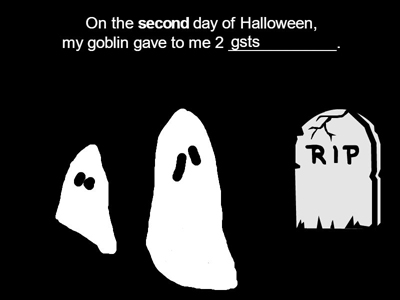
Explain to students that they will create a page that includes an illustration showing the specific number of Halloween characters based on the day. The will also write or type the name of the object, the number of the objects on the page, and the ordinal number of the day in the 13 day sequence.
Have each student choose the Halloween object they wish to count on their page. Have a parent, aide, or school buddy work with each student to draw the Halloween objects and write the numbers and object names.
If you have a tool like Wixie, your students can create a digital class book with text, illustrations, and voice narration. Students can use Wixie's built-in paint tools and Halloween clip art to quickly design illustrations. Teachers can also search “Halloween” to find a template you can assign that includes 13 pages with text objects already on each page.
If your students have their own devices or are technology power users, have them create a project with all 13 days!
Share
Combine individual student pages together into a class book. Use the Project Wizard feature if you have Wixie.
Share the book in its interactive form on a classroom web site or present it from a local computer. You can also export the file as an ePub or PDF to send home with students to read with their families.
You could also print copies of each student's page as trading cards or comics. Have students cut them out, trade them, and then work to put them in the correct sequence to make their own set of Halloween cards to take home.
Assessment
This fun project is designed to apply basic counting and number sense. At a glance you can assess student ability. Printing out pages at small size so students can order and organize provides an additional opportunity to evaluate number sense.
Resources
Ziefert, Harriet and Taback, Simms. Two Little Witches: A Halloween Counting Story. ISBN: 0763618942
Standards
Common Core Anchor Standards for Mathematics - Kindergarten
Counting and Cardinality
1. Count to 100 by ones and by tens.
3. Write numbers from 0 to 20. Represent a number of objects with a written numeral 0-20 (with 0 representing a count of no objects).
4. Understand the relationship between numbers and quantities; connect counting to cardinality.
5. Count to answer “how many?” questions about as many as 20 things arranged in a line, a rectangular array, or a circle, or as many as 10 things in a scattered configuration; given a number from 1-20, count out that many objects.
Common Core Anchor Standards for English Language Arts - Kindergarten
Writing Theme
Production and Distribution of Writing
4. Produce clear and coherent writing in which the development, organization, and style are appropriate to task, purpose, and audience.
Range of Writing
10. Write routinely over extended time frames (time for research, reflection, and revision) and shorter time frames (a single sitting or a day or two) for a range of tasks, purposes, and audiences
Speaking and Listening Theme
Presentation of Knowledge and Ideas
4. Present information, findings, and supporting evidence such that listeners can follow the line of reasoning and the organization, development, and style are appropriate to task, purpose, and audience.
ISTE NETS for Students 2016:
6. Creative Communicator
Students communicate clearly and express themselves creatively for a variety of purposes using the platforms, tools, styles, formats and digital media appropriate to their goals. Students:
a. choose the appropriate platforms and tools for meeting the desired objectives of their creation or communication.
b. create original works or responsibly repurpose or remix digital resources into new creations.
d. publish or present content that customizes the message and medium for their intended audiences.


